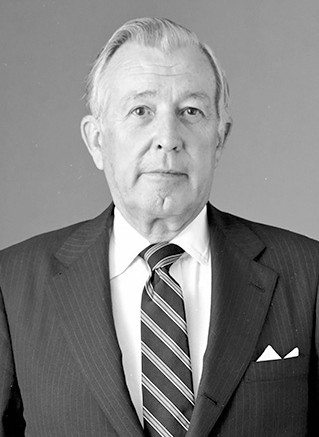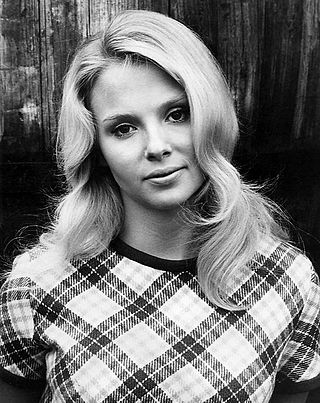Related Research Articles

Astrology is a range of divinatory practices, recognized as pseudoscientific since the 18th century, that propose that information about human affairs and terrestrial events may be discerned by studying the apparent positions of celestial objects. Different cultures have employed forms of astrology since at least the 2nd millennium BCE, these practices having originated in calendrical systems used to predict seasonal shifts and to interpret celestial cycles as signs of divine communications. Most, if not all, cultures have attached importance to what they observed in the sky, and some—such as the Hindus, Chinese, and the Maya—developed elaborate systems for predicting terrestrial events from celestial observations. Western astrology, one of the oldest astrological systems still in use, can trace its roots to 19th–17th century BCE Mesopotamia, from where it spread to Ancient Greece, Rome, the Islamic world, and eventually Central and Western Europe. Contemporary Western astrology is often associated with systems of horoscopes that purport to explain aspects of a person's personality and predict significant events in their lives based on the positions of celestial objects; the majority of professional astrologers rely on such systems.

Nancy Davis Reagan was an American film actress and the First Lady of the United States from 1981 to 1989, as the second wife of president Ronald Reagan.

Donald Thomas Regan was the 66th United States secretary of the treasury from 1981 to 1985 and the White House chief of staff from 1985 to 1987 under Ronald Reagan.

Jeane Dixon was one of the best-known American psychics and astrologers of the 20th century, owing to her prediction of the assassination of President John F. Kennedy, her syndicated newspaper astrology column, some well-publicized predictions, and a best-selling biography.

The Reagans is a 2003 American biographical drama television film about U.S. President Ronald Reagan and his family. It was directed by Robert Allan Ackerman and written by Jane Marchwood, Tom Rickman, and Elizabeth Egloff, based on the 1991 biography First Ladies Volume II by Carl Sferrazza Anthony. It stars James Brolin as Reagan and Judy Davis as First Lady Nancy Reagan. The supporting cast includes Željko Ivanek, Mary Beth Peil, Bill Smitrovich, Shad Hart, Zoie Palmer, Richard Fitzpatrick, Vlasta Vrána, Francis Xavier McCarthy, Frank Moore, Aidan Devine, and John Stamos.

The Ronald Reagan Presidential Library is the repository of presidential records from the Reagan administration. Located in Simi Valley, California, the library is administered by the National Archives and Records Administration and is the burial place of Ronald and Nancy Reagan. It contains millions of documents, photographs, films and tapes. It also contains memorabilia and a permanent exhibit of Ronald Reagan's life.

Patricia Ann Davis is an American actress and author. She is the daughter of U.S. president Ronald Reagan and his second wife, Nancy Reagan.

Joyce Jillson was an American syndicated newspaper columnist, best-selling author, actress, and astrologer, whose column was syndicated worldwide in more than 200 papers and magazines.

William Patrick Clark Jr. was an American rancher, judge, and public servant who served under President Ronald Reagan as the Deputy Secretary of State from 1981 to 1982, United States National Security Advisor from 1982 to 1983, and the Secretary of the Interior from 1983 to 1985.

On March 30, 1981, President of the United States Ronald Reagan was shot and wounded by John Hinckley Jr. in Washington, D.C., as he was returning to his limousine after a speaking engagement at the Washington Hilton. Hinckley believed the attack would impress actress Jodie Foster, with whom he had developed an erotomanic obsession.

The Curse of Tippecanoe is an urban legend about the deaths in office of presidents of the United States who were elected in years divisible by 20. According to the legend, Tenskwatawa, leader of Native American tribes defeated in 1811 at the Battle of Tippecanoe by a military expedition led by William Henry Harrison, had cursed the "Great White Fathers".

Michael Keith Deaver was a member of President Ronald Reagan's White House staff serving as White House Deputy Chief of Staff under James Baker III and Donald Regan from January 1981 until May 1985.
Carroll Righter was known as the "astrologer to the stars". He wrote a syndicated daily advice column for 166 newspapers around the world and was reputed to be an advisor to Ronald and Nancy Reagan.
The bibliography of Ronald Reagan includes numerous books and articles about Ronald Reagan. According to J. David Woodard, a political science professor, more than 11,000 books on Reagan have been published.

My Turn: The Memoirs of Nancy Reagan is an autobiography authored by former First Lady of the United States Nancy Reagan with William Novak. It was published by Random House in 1989.

The Day Reagan Was Shot is a 2001 American made-for-television film drama film directed by Cyrus Nowrasteh and co-produced by Oliver Stone. The film stars Richard Dreyfuss as Alexander Haig and Richard Crenna as Ronald Reagan, and co-stars Michael Murphy, Holland Taylor, Kenneth Welsh and Colm Feore.

Frederick Leonard Ahearn was an American political and corporate consultant who served as executive vice president of Potomac Communications Strategies in Alexandria, Virginia. He is best known for his long service as lead advance man for Ronald Reagan, as a candidate in 1979–1980 and for most of his two terms as president; he was standing close to Reagan during his attempted assassination on March 30, 1981. Ahearn was also a senior adviser and planner for the presidential funerals and burials of Reagan and Gerald Ford, as well as Jack Kemp and First Lady Nancy Reagan. In all, he served five U.S. presidents and six vice presidents, and aided 14 presidential campaigns from 1968 to 2016.

Killing Reagan is a 2016 American television drama film directed by Rod Lurie and written by Eric Simonson. It is based on the 2015 book of the same name by Bill O'Reilly and Martin Dugard. The film stars Tim Matheson, Cynthia Nixon, Joe Chrest, Joel Murray, Kyle S. More, and Michael H. Cole. The film premiered on October 16, 2016, on the National Geographic Channel.
References
- 1 2 3 "The President's Astrologers", People (May 23, 1988)
- 1 2 "Nancy Reagan. My Turn: The Memoirs of Nancy Reagan
- 1 2 Donald Regan. For the Record: From Wall Street to Washington, (San Diego: Harcourt Trade Publishers, 1988), ISBN 0151639663
- ↑ "Reagan astrologer, Joan Quigley, dies at 87". AP News. October 24, 2014. Retrieved March 15, 2023.
- ↑ "Good Heavens! An astrologer dictating the President's schedule?", Time (May 16, 1988)
- ↑ "The president’s stargazer", The Economist (November 8, 2014)